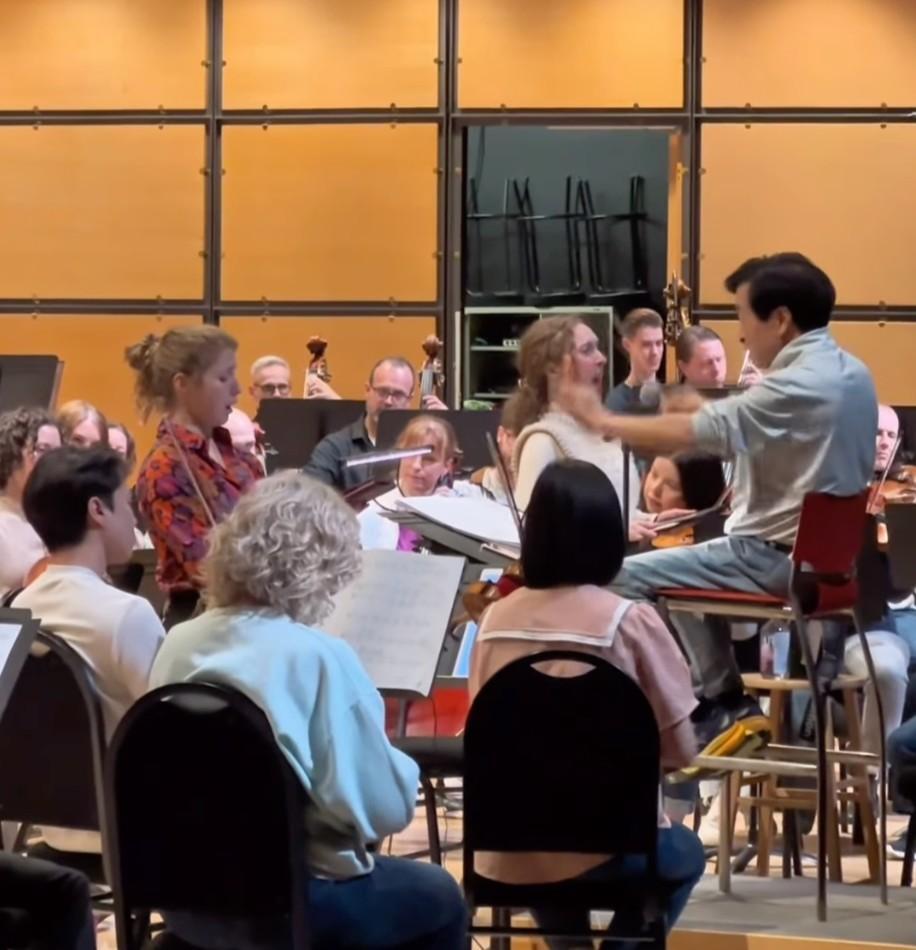
Entrepreneur pays ₹3.4 crore to lead 102-year-old orchestra in Canada; musicians object
In a shocking turn of events, Canadian entrepreneur Mandle Cheung, CEO of Computer Talk Technology, has paid a staggering $400,000 (approximately ₹3.44 crore) to lead the 102-year-old Toronto Symphony Orchestra as a conductor. While Cheung’s motivations may have been genuine, his decision has sparked a heated debate among musicians, with many objecting to the idea of amateurs taking over the role of conductor.
So, what does a music conductor do? A conductor is responsible for leading an orchestra, guiding the musicians through a performance, and bringing the composer’s vision to life. It’s a highly skilled and demanding job that requires years of training, dedication, and expertise. Conductors work closely with the orchestra, interpreting the score, setting the tempo, and making adjustments as needed to ensure a flawless performance.
Cheung’s decision to pay a large sum of money to lead the Toronto Symphony Orchestra has raised eyebrows among musicians and music enthusiasts. “I’ve seen the magic of the guy standing in front of the orchestra,” Cheung said in an interview. “So, I said, ‘Why can’t I do it?’…I can afford to…that’s the main thing.” Cheung’s confidence in his ability to conduct may be admirable, but his lack of experience and training in music has left many questioning his qualifications.
The Toronto Symphony Orchestra has a rich history, dating back to 1906. With a reputation for excellence and a commitment to showcasing the world’s greatest music, it’s no surprise that the orchestra has been met with skepticism and criticism over Cheung’s decision. Multiple musicians have spoken out against the idea of amateurs taking over the role of conductor, citing concerns about the integrity of the orchestra and the potential damage to its reputation.
One of the biggest concerns is that Cheung’s lack of experience and training will compromise the quality of the orchestra’s performances. Conducting an orchestra requires a deep understanding of music, as well as the ability to communicate effectively with the musicians. While Cheung may have a passion for music, it’s unclear whether he possesses the necessary skills to lead the orchestra to success.
Furthermore, the Toronto Symphony Orchestra is not just a group of musicians playing together; it’s an institution with a rich history and a commitment to excellence. The orchestra has a reputation to uphold, and the decision to let an amateur conduct without proper training and experience is a risk that may damage its reputation.
The controversy surrounding Cheung’s decision has sparked a wider debate about the role of amateurs in the music world. While it’s true that anyone can learn to play an instrument or sing, conducting an orchestra is a highly specialized skill that requires years of training and dedication. The Toronto Symphony Orchestra is not a community band or a group of friends playing together; it’s a professional organization with a commitment to excellence.
Cheung’s decision to pay a large sum of money to lead the orchestra has also raised questions about the value of music and the role of money in the arts. While it’s true that the arts can be a lucrative business, the Toronto Symphony Orchestra is not just a commercial enterprise; it’s an institution that exists to promote and preserve the world’s greatest music.
In conclusion, the decision of Canadian entrepreneur Mandle Cheung to pay $400,000 to lead the 102-year-old Toronto Symphony Orchestra as a conductor has sparked a heated debate among musicians and music enthusiasts. While Cheung’s confidence in his abilities may be admirable, his lack of experience and training in music has left many questioning his qualifications. The controversy surrounding Cheung’s decision highlights the importance of preserving the integrity and excellence of the Toronto Symphony Orchestra, and the need for trained and experienced conductors to lead the orchestra.




